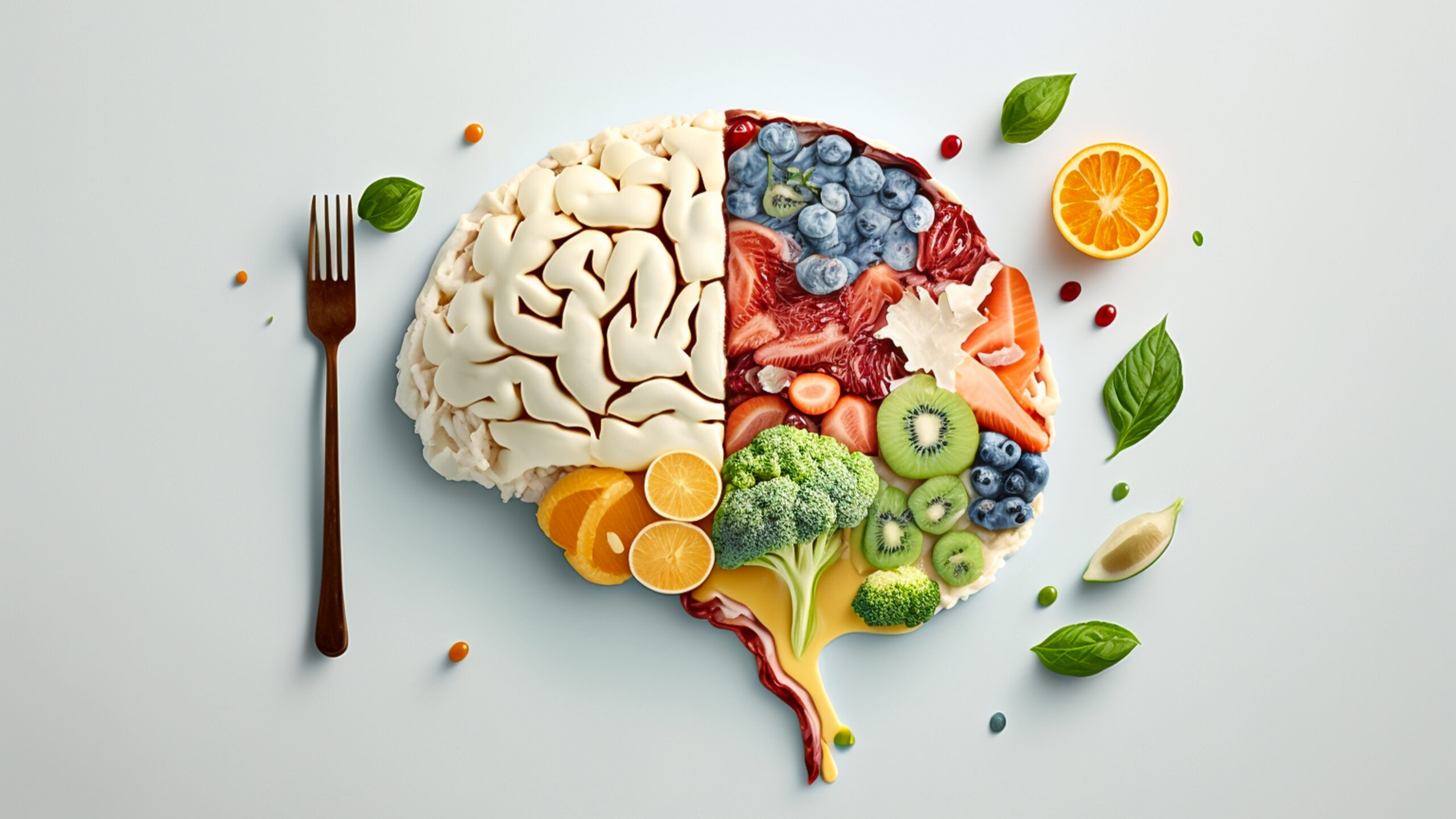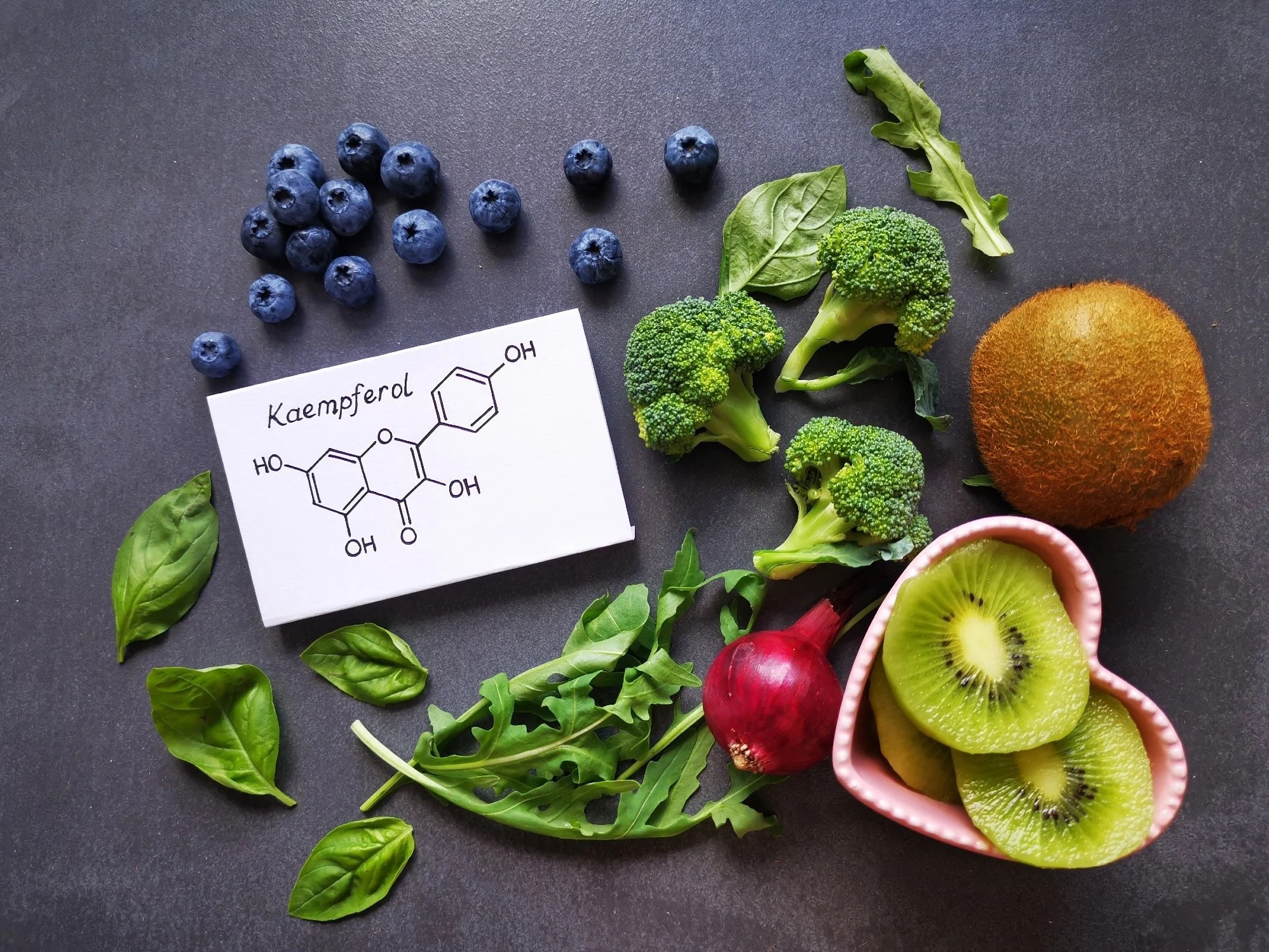Boosting Brain Health: The Power of Flavonoids
Crafted by: Jonathan Chew

Cognitive decline is a major concern as we age, with Alzheimer’s disease and other forms of dementia affecting millions worldwide. The good news is that new research is shedding light on dietary strategies that can help protect against cognitive decline. Among these, flavonoids—a group of plant-based chemical compounds—are emerging as powerful allies in maintaining brain health. This article explores the role of flavonoids in cognitive health, why they are beneficial, and how to incorporate them into your diet.
The Importance of Cognitive Health
Maintaining cognitive health is essential for aging well. Cognitive decline can affect memory, thinking skills, and the ability to perform everyday tasks, significantly impacting quality of life. While genetics and aging are factors we cannot control, lifestyle choices—such as diet, sleep, and stress management—play a crucial role in preserving cognitive function.
The Basics: Sleep, Diet, and Stress Management
Before diving into the benefits of flavonoids, it’s important to highlight the foundational aspects of brain health. Ensuring ample sleep, maintaining a balanced diet, and effectively managing stress are critical for cognitive health. These basics provide the foundation upon which additional strategies, such as flavonoid intake, can build.
- Ample Sleep: Sleep is essential for brain function, including memory consolidation and the removal of toxins that accumulate in the brain during waking hours. Chronic sleep deprivation is linked to an increased risk of cognitive decline and dementia.
- Balanced Diet: A diet rich in fruits, vegetables, whole grains, and healthy fats supports overall brain health. Specific dietary patterns, such as the Mediterranean and DASH (Dietary Approaches to Stop Hypertension) diets, have been associated with a lower risk of cognitive decline.
Stress Management: Chronic stress can have detrimental effects on the brain, contributing to inflammation and the development of neurodegenerative diseases. Techniques such as mindfulness, meditation, and regular physical activity can help manage stress levels.

What Are Flavonoids?
Flavonoids are a diverse group of phytonutrients (plant chemicals) found in almost all fruits and vegetables. They are known for their antioxidant and anti-inflammatory properties, which contribute to various health benefits. Flavonoids are categorized into several subgroups, each with unique properties and health effects.
Top Flavonoids for Brain Health
The meta-analysis identified specific types of flavonoids that are particularly beneficial for brain health:
- Anthocyanins: Found in berries, currants, grapes, and some tropical fruits, anthocyanins are associated with a 27% reduced risk of cognitive decline. These compounds give fruits and vegetables their red, blue, and purple colors and are powerful antioxidants that protect the brain from oxidative stress.
- Flavones: Found in celery, artichokes, and kumquats, flavones are linked to a 23% reduced risk of cognitive decline. Flavones have strong anti-inflammatory properties, which help protect the brain from inflammation-related damage.

Why Are Flavonoids Beneficial?
Researchers believe that flavonoids offer several mechanisms that contribute to their cognitive benefits:
- Improved Brain Blood Flow: Flavonoids are thought to enhance cerebral blood flow, ensuring that the brain receives adequate oxygen and nutrients. This improved circulation may help protect against age-related cognitive decline.
- Inhibition of Beta-Amyloid Plaques: One of the hallmarks of Alzheimer’s disease is the buildup of beta-amyloid plaques in the brain. Some flavonoids may inhibit the formation of these plaques, reducing the risk of Alzheimer’s.
- Antioxidant and Anti-Inflammatory Effects: Flavonoids are potent antioxidants, meaning they can neutralize harmful free radicals that damage brain cells. Additionally, their anti-inflammatory properties help protect neurons and glial cells from neurotoxin-induced damage.
However, it’s important to note that flavonoids are not a standalone solution for preventing cognitive decline. A balanced diet, sufficient sleep, and effective stress management should be prioritized as foundational steps. Flavonoids can be seen as an additional layer of protection, enhancing the overall strategy for maintaining cognitive health.
Broader Benefits and Ongoing Research
While the focus here is on cognitive health, flavonoids offer a wide range of other health benefits. They have been linked to reduced risks of heart disease, cancer, and other chronic conditions. As research on cognitive decline prevention continues to evolve, the broad health benefits of flavonoids make them a valuable addition to your diet and supplements, regardless of cognitive health concerns.
Current studies are exploring the full extent of flavonoids’ effects on brain health. Although the research is promising, more studies are needed to fully understand the mechanisms by which flavonoids influence cognitive function and how they can be most effectively incorporated into preventive health strategies.
Incorporating Flavonoids into Your Diet
Given their potential benefits, it’s worth considering how to increase your flavonoid intake. Flavonoids are found in a variety of foods, making it easy to incorporate them into your daily diet.

Flavonoid-Rich Foods to Consider:
Fruits:
Grapes
Apples
Berries (such as blueberries, strawberries, and blackberries)
Tomatoes
Oranges
Lemons
Kumquats
Vegetables:
Celery
Red peppers
Kale
Artichokes
Herbs & Beverages:
Parsley
Chamomile
Mint
Red wine (in moderation)
These foods are not only rich in flavonoids but also provide a variety of other nutrients that support overall health. By incorporating a diverse range of fruits, vegetables, herbs, and even a moderate amount of red wine into your diet, you can boost your flavonoid intake and potentially protect your brain from cognitive decline.
Practical Tips for Adding Flavonoids to Your Diet:
- Start Your Day with Flavonoid-Rich Foods: Consider adding berries to your morning oatmeal or yogurt. You can also enjoy a glass of freshly squeezed orange juice or a cup of chamomile tea.
- Incorporate Flavonoids into Meals: Add sliced apples or grapes to salads or use herbs like parsley and mint as garnishes. Cook vegetables like kale and red peppers as side dishes.
- Snack Smart: Keep flavonoid-rich snacks on hand, such as fresh berries, celery sticks, or a handful of nuts mixed with dried fruits.
- Enjoy a Glass of Red Wine: If you consume alcohol, a moderate amount of red wine can be a flavonoid-rich addition to your diet. However, moderation is key, as excessive alcohol consumption can have negative health effects.
- Try New Recipes: Experiment with recipes that feature flavonoid-rich ingredients. For example, try making a berry smoothie, a Mediterranean-inspired salad with artichokes and tomatoes, or a stir-fry with celery and red peppers.
Conclusion: The Power of Flavonoids
As research continues to explore the prevention of cognitive decline, flavonoids are emerging as a valuable component of a brain-healthy diet. These plant-based compounds have been shown to enhance brain blood flow, inhibit the formation of harmful beta-amyloid plaques, and provide antioxidant and anti-inflammatory benefits.
While more research is needed to fully understand the mechanisms by which flavonoids protect cognitive health, their broad health benefits make them a worthy addition to any diet. By prioritizing the basics—ample sleep, a balanced diet, and stress management—and incorporating flavonoid-rich foods, you can take proactive steps to protect your brain as you age.
In conclusion, boosting your brain health with flavonoids is a simple yet effective way to support cognitive function and reduce the risk of dementia. Start by adding more flavonoid-rich foods to your meals and enjoy the wide-ranging benefits they offer for both your brain and overall health.

